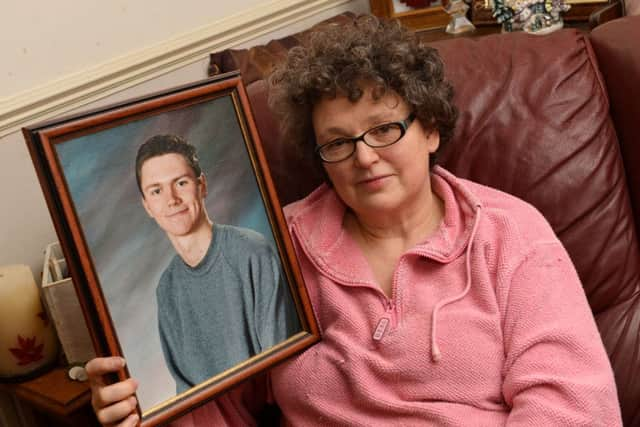Bereaved mum whose son's organs helped others urges families to talk about life-saving donation


Kay Stevens of Bull Baulk, Middleton Cheney, said the fact that others had been given the chance to live and two people given their sight back because of her son’s generosity, had made the deep grief over his death a bit easier to deal with.
She spoke out after a national campaign was launched by the NHS Blood and Transpolant Service (NHSBT) to reduce the number of families blocking organ donation – in spite of theirloved ones’ wishes.
Advertisement
Hide AdAdvertisement
Hide Ad“I am so dreadfully sad to hear that 500 families in the last five years have overidden their loved ones’ wishes to have their organs used after death,” said Mrs Stevens.
“Not only have 2,500 people not had the life-saving chance they need but those families denied themselves the comfort of knowing their brother, sister, son or daughter’s life was not wasted.
“Look at it this way – if you are ever in this situation, and I pray you aren’t, you would give anything to save your loved one’s life.
“If it isn’t possible, allow your loved one to save many other lives, otherwise you wont just be burying one family member, five other people will be losing their chance to live.
Advertisement
Hide AdAdvertisement
Hide Ad“I lost my son – it doesn’t get any tougher that that. But the one chink of light is that by his wish, five other people had a chance to live and two can see.”
Mrs Stevens’ son Michael was just 16 when he was struck by a truck as he was walking to work in Banbury.
He had declared his wish to be an organ donor and his family, though devastated, gave their blessing.
Mrs Stevens said: “It’s something I feel evangelical about. People can see the benefit to the recipient but don’t realise how much it helps the donor family.
Advertisement
Hide AdAdvertisement
Hide Ad“We had a lovely letter from a lad of 19 whose life was transformed getting Michael’s kidney. H e went on to win a bronze medal in table tennis in the transplant games.”
In the years following Michael’s death, Mrs Stevens visited various hospitals to talk to staff on the importance of asking families to consider organ donation if their loved one was dying and how best to approach them.
“When people lose a child they do everything they can to make sure no-one else has to go through it,” she said.
NHSBT is looking at ways to reduce the number of families who do not support their relative’s decision to be a donor.
Advertisement
Hide AdAdvertisement
Hide AdLegally, the donor has given all the consent necessary by registering but currently the NHSBT service does not force the issue and repects family decisions if they do not want their deceased loved one’s organs to be used.
They are considering providing families a leaflet explaining consent rests with the deceased and not the family; continuing to ask a potential donor’s family to help assess the risk (by providing information about their loved one’s medical and travel history) but not actually asking the next of kin to confirm consent; and lastly asking families to sign a document confirming their reasons for overriding their relative’s decision, in the hope this might help a family to honour their relative’s decision.
Sally Johnson of NHSBT said: “The more we all talk about organ donation, the less ambiguity and room for misunderstanding there will be. So please talk to your relatives and tell them that should the time come, you want them to support your decision to save lives after your death.”